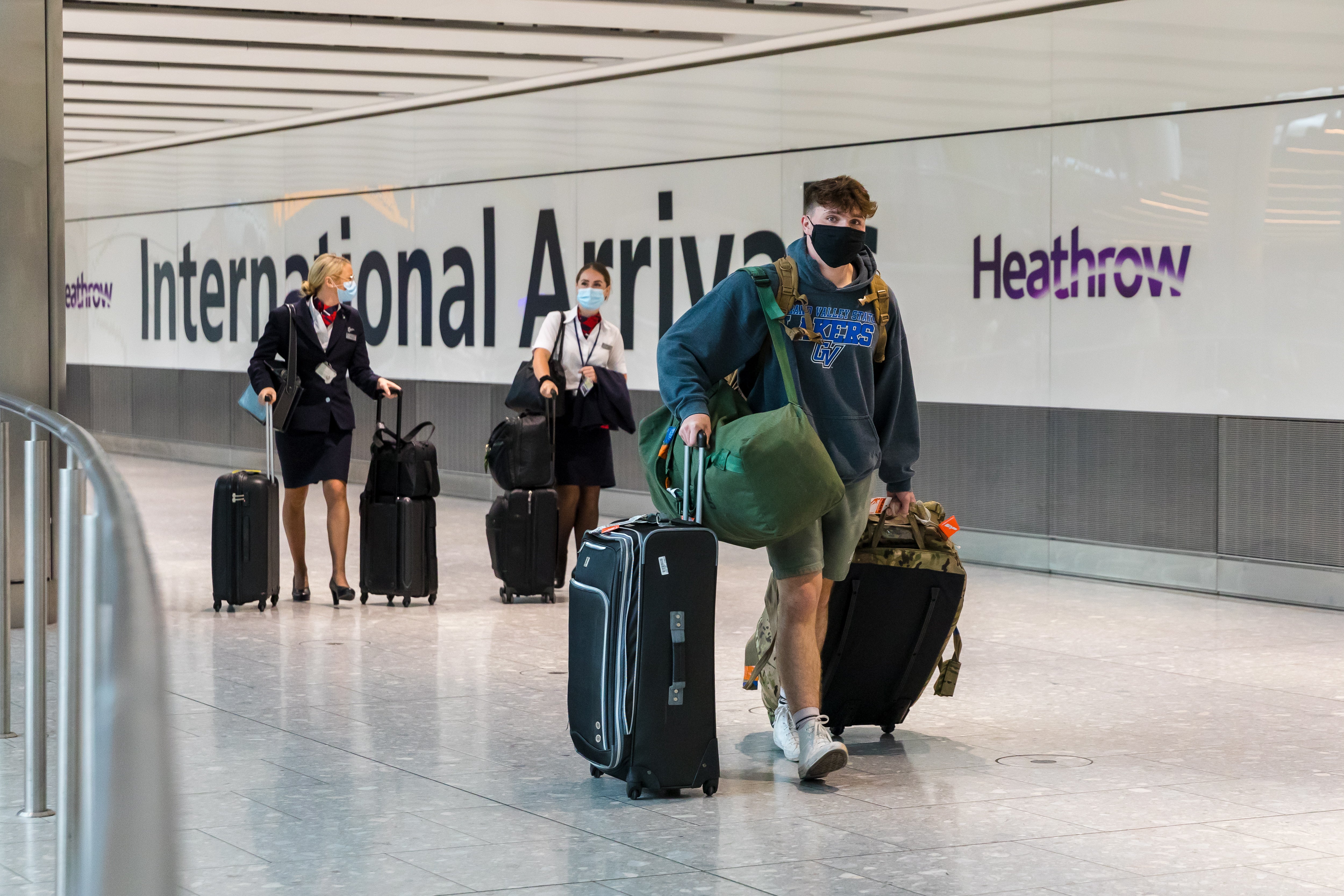‘A big chaotic policy mess’: borders expert rails against UK travel rules
Exclusive: ‘UK border measures do not even effectively mitigate public health risks,’ says Professor Kelley Lee

A leading expert on international travel during the coronavirus pandemic has described the UK government’s strategy as “a big chaotic policy mess”.
Professor Kelley Lee, Canada research chair in Global Health Governance at Simon Fraser University in British Columbia, told The Independent: “From a public health risk assessment and mitigation perspective, I would say it is not ‘fit for purpose’.”
In June the prime minister claimed in the Commons: “We have the toughest border measures anywhere in the world”.
Professor Lee said: “I find this puzzling. Over the past 18 months, the UK has been among the poorer performing countries when it comes to identifying travellers infected with Sars-CoV-2 and preventing infected travellers from reaching the wider population and causing onward transmission.
“The government was slow to act, introduced testing at borders very late and for the wrong reasons [to reduce quarantine requirements], and has exempted huge numbers of travellers from existing measures.
“On top of all this, the UK has one of the most complicated systems we have seen among any countries, blending risk assessment based on geography [traffic light rankings], citizenship, purpose of travel [exemptions], vaccination status, and now location of where you got your vaccine into a big chaotic policy mess.
“I don’t think it is friendly to travellers but the UK border measures do not even effectively mitigate public health risks.”
Professor Lee, who has provided expert testimony to the Home Affairs Select Committee, said: “There are several reasons why the UK is on so many countries’ ‘red’ list and poor use of border measures is one.
“Boris Johnson is thus essentially awarding himself a gold medal when, in reality, the UK is not even on the podium on this issue.”
Professor Lee said that effective management of travel-related risks will be “critical over the next 12-18 months, particularly given slow progress on achieving global equity in access to vaccines”.
She said: “If you are going to get rid of quarantine requirements for some fully vaccinated people, you need to make sure that you put into place sufficient testing capacity to identify any breakthrough infections.
“This is because there is now evidence from around the world that shows that pre-departure testing helps but arriving passengers are still testing positive, for example in Singapore, Australia and China.
“This includes fully vaccinated travellers. This is because viral loads may be low at the time of pre-departure testing, there may be false negatives or the traveller may become infected in the interval between testing and travelling. Some estimate that only around 50 per cent of infected people are identified through pre-departure tests.”
Professor Lee also recommends better staffing at border posts. “The increase in travel volumes can potentially overwhelm ports of entry, leading to mixing of populations of varying risk, ineffective application of testing, and poor infection control.”
Speaking on Sky News, the skills minister Gillian Keegan defended the UK government’s travel policies.
“Obviously we’re exploring more options and every option,” she said. “But the reality is we’re trying to tread this careful balance, and it is a careful balance, between opening up travel when we know that there are variants and they’re popping up in different ways in different countries, and we know obviously there’s different case rates in different countries as well.
“So we are trying to be as open as possible to travel but also to keep people safe, and that’s a difficult balance.”
Canada is planning to open up to all fully vaccinated international travellers on 7 September, but Professor Lee described the plans of the government in Ottawa as “highly flawed”.
She said border measures have two purposes: to identify travellers who are infected, and to prevent those infected travellers from reaching the wider population and potentially transmitting the virus, through quarantine and contact tracing.
“Good testing means quarantine can be used more selectively. Thus, the current plan to reopen to fully vaccinated international visitors is not the problem. It is the planned system of testing (or lack thereof) that is highly concerning.
“In fact, Canada will go even further than the UK (and against an expert advisory panel’s advice) in dispensing with testing upon and after arrival and only relying on a pre-departure test.”
Professor Lee said: “Many travellers will import Sars-CoV-2 and its variants into Canada as a result. Coupled with their exemption from quarantine, this will mean these infected individuals will then circulate within the wider population.
“This will occur as many provinces have dispensed with mandatory mask wearing and social distancing requirements.”
The Canadian government is hoping that sufficient numbers of people will be fully vaccinated so it won’t matter. However, among the most vulnerable will be around 2 million children who are 12 years and under, none of whom are vaccinated at this time, who will be returning to school just at that point.
“To be honest, we are already bracing ourselves for a fourth wave in Canada, which is so frustrating as this could be entirely prevented with better decisions,” Professor Lee said.
Join our commenting forum
Join thought-provoking conversations, follow other Independent readers and see their replies
Comments
Bookmark popover
Removed from bookmarks